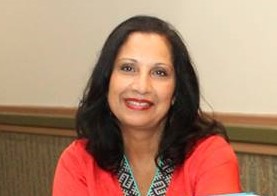Yesterday I FaceTimed with Nyla, my youngest grandchild, as I always do and my mask of happiness fell apart. Tears started rolling down and wouldn’t stop. First, I tried to stop myself- after all many grandparents have to FaceTime, and how fortunate that we have this technology! And then I realized that this is a normal human reaction. I understood that I was grieving. Literally everything we used to be able to do- in my case weekly visits to Nyla and my other kids/grandkids-has had to stop suddenly. And as we slowly adjust to the new circumstances, the grief process sets in.
We might be very cavalier up-front, and make light of it, which could be called denial. Or we may get upset and angry as to why this happened, and like some crazy people start to throw blame at others, e.g. Tucker Carlson on FOX News (why was I watching that crazy channel last night????) saying that China is responsible for this. How does that help anyone? Clearly, the lesson is lost on some people. And as realization sets in, we feel the true sadness of the situation, which is where I am right now. We mourn the life we used to take for granted. And my sadness would seem silly to someone losing their job or their business or worse, losing a loved one. Several friends have lost friends or co-workers already in my county- Bergen County, NJ- and some are in the hospital too. Every day the sadness sinks in deeper. Along with the sadness is the fear and uncertainty- how long will this go on? Will we be safe this year or ever again?
I remember coaching employees that had been laid off in corporations and doing workshops to help them process their grief of that sudden life change. Whether it was finance, pharmaceutical or other industries, laying off workers was a constant activity for the CEO’s and their teams egged on by our Wall Street bankers (can’t we figure out a better way to do capitalism?). We, in Organization Development, would have to scramble and put together programs to help both the impacted employees and the “survivors” (I can’t believe we called them the survivors as if they survived a bombing) process their cycle of emotions. The negative mood and energy were palpable, and I can feel it now again but on an unimaginable scale- totally global and enveloping the whole Planet.
Yes, there is grief and there is fear. But in the end, the best advice is to let the emotions move through you. “Emotions need motion”(see https://hbr.org/…/03/that-discomfort-youre-feeling-is-grief… . By allowing ourselves to feel the emotion and naming it and being aware of it, we can keep going and arrive at acceptance and surrender, where we adjust to the new way. As we submit to the inevitable, to what has been ordained for us, we find inner peace. In essence, that is what we are taught as Muslims anyway to submit and surrender. And as I reflect on all the grief I have felt for Palestinians for 50 years, for Kashmiris for 60 years, for Afghanis & Iraqis for 20 years, Africa the forgotten continent and African Americans in prison (“Just Mercy” is an amazing film to watch about this topic), Rohingya refugees, Indian Muslims and all minorities oppressed or persecuted by majorities, Iranis under sanctions and persecution (Read “The Ungrateful Refugee” to feel the pain of today’s refugees), Syrians, Yemenis, South American refugees and asylum seekers and American workers in manufacturing sector now underemployed, I wonder if our current grief will have us finally feel their grief and act differently towards the world and planet at large? I truly hope so, and I hope that kindness, moderation, simple living and compassion spreads like a virus throughout the world and overtakes the relentless hate and violence we were witnessing.


Be First to Comment